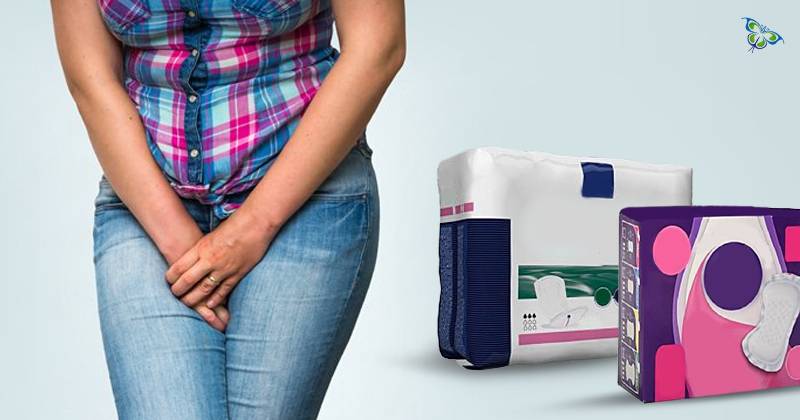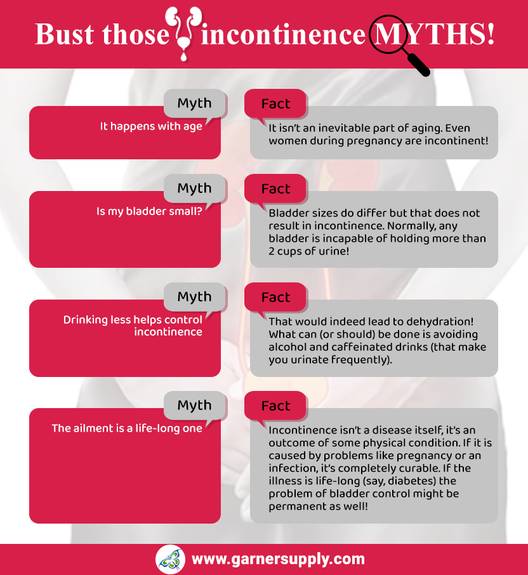
Hello
Select Address

Towards the end of my pregnancy term, I got to know what 'incontinence' feels like! It not only causes stress but also tends to distance you from society as well. Yes, I began to avoid outings, especially the ones that would last for a few hours. I started dreading the fact that what if my incontinence continues even after my pregnancy, like so many who suffer in their old age?
Thankfully, after the birth of my son I was out of it and some other issues as well. Since I had read a lot about incontinence back then, I am penning down this only to help others battling similar issues (if at all this helps)!
So, when did I come to know that the problem is ‘incontinence’? In fact, how do you get to know that its loss of bladder control and not any normal physiological phenomenon?
The different stages or causes of bladder incontinence...
Bladder incontinence has different levels. From a negligible amount of leak while you sneeze or cough to complete loss of bladder control (you don’t even have the time to go to the toilet as soon as you feel the urge to pee!) – Incontinence has several stages.
The small amount of urine that leaks as soon as you cough, sneeze, suddenly lift a heavy object, or burst out laughing is stress incontinence. Frequent urge to urinate (more than 10 to 12 times a day), and even when your bladder is empty is due to an overactive bladder.
Incontinence might also occur due to several medical conditions like arthritis (keeps you from reaching the toilet in time), Parkinson's disease, multiple sclerosis, or simply diabetes (all of these cause damage to nerves and muscles in the body). An enlarged prostate is one of the most common causes among men. Surgeries like hysterectomy might cause damage to ligaments and some muscle tissues that ultimately leads to loss of bladder control.
The issue, therefore, spreads across all ages and sex. The common notion that incontinence is a concern of the aged section is not a correct one. In fact, as I am already in my late 30s, this particular concern haunts me as bladder issues might relapse even after one’s menopause!

The adult pull-ups...
The stigma and taboo associated with both the problem of incontinence and the use of adult diapers are unfortunately large. Indeed that is why we need to speak up more and more on this issue. The idea of an adult wearing diaper causes inhibition to most people. And hence these products are also popularly called 'adult pull-ups'. They undoubtedly, bear some commendable benefits for the users –
• You can use them as normal underpants (hence the name ‘pull-ups’)
• They are often wearable for 8 to 10 hours or even more!
• They are mostly made of breathable fabric that gives you a cottony-feeling inside
• Some brands are available with wetness indicators and tear-away sides for easy disposal
Do you have to depend completely upon this compromised change?
This is the question that tends to haunt most users, well, thankfully, the answer is ‘No’. It is not always that the bladder muscles cannot be strengthened, and you need to depend on diapers and pull-ups for all your life. Well, for now, leave the medication and surgery part and do your bit to get rid of this...
Practice some of these and they might work effectively -
• Check your body weight – obesity is a curse (not only for your bladder but your entire being!)
• You can try some of the pelvic floor exercises
• Avoid some bladder irritating foods like caffeine, alcohol as well as acidic foods.
• Quit smoking, if possible
• Intake more fiber-rich foods; they prevent constipation (it irritates your bladder)
Notwithstanding these, if you still need to be on diapers, you only need to tell yourself, "It's okay"!